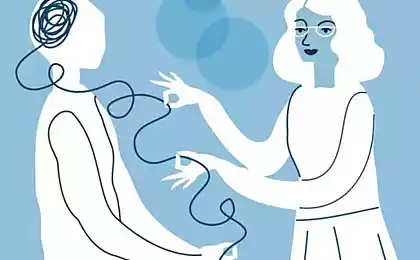142
Words that will infuriate even the quietest interlocutor
What words to use in speech so as not to irritate others? And where is the boundary between expressions that enrich the language and clog it? We conducted a survey among readers and compiled a list of phrases that cut the hearing of a literate person the most.

Forecasting possible objections, we agree that any living language is necessarily modified. But it is also true that we can separate the grain from the chaff. Therefore, it is worth checking whether you are not sinning with words, from which an impressionable Russian teacher can have a heart attack.
What words to use in speech
Fashionable youth turnover can be considered synonymous with the phrase “liked”, “caused positive emotions”. For example, if a joke “did not go” to someone, it means that it did not seem funny. Everything would be nothing if you did not think about what goes in and where.

Smile.
What do you mean, "I smiled"? It means I smiled against my will. Here involuntarily comes to mind the word "crooked" and there is a certain evil force that forces the speaker to smile.
© Phere
It should be noted that around the admissibility of using the word “smiled” in the Network developed serious controversy. Some consider it a neologism, others an example of language creativity or intentional twisting, and some just a “freak manifestation of illiteracy of individual users of LiveJournal”.
It is also believed that the frequent use of the word “smiled” in the comments indicates the impoverishment of the vocabulary and emotional side of users. People feel emotions that cause a smile, but they can not distinguish, nor - especially - name their feelings, so instead of "laughing", "gives pleasure", "raises the mood" they are forced to limit themselves to the statement of external manifestation: "smiled" - and everything is here.
Poet Irma Kaller writes: "Smiled" - the most common review on stihi.ru ... (you might think that the authors have nothing more to say to each other ...). And immediately puzzles us with the forgotten meaning of this word from Dahl’s dictionary: “Smile – whom, Kaluzhsk. tver. – to deceive, cheat, not to give promised.”
Style.
The pretext “on” suddenly began to appear in the most unpredictable places. It all began “on the district”, then immigrants from these most sleeping areas filled with phrases “on sports”, “positive”, “on style” live communication, social networks and even advertising. View this post on Instagram
A post shared by "No Equals" (@netravnih_belgorod)
For example, on Instagram you can find more than 2 million posts with the hashtag #flooring. I wouldn’t be surprised if, over time, we see the hashtag #magramote spread. Although literacy and “in style” are things, of course, not compatible.
Give me a shot.
The expression “injection” came to us from the jargon of doctors. But the literary option is only one: to give an injection or vaccination.
Familiar phrases, aren't they? Everyone has heard or spoken them at least once in their lives. However, it is better to forget about the listed markers of an illiterate person and never repeat them again. At a minimum, this will not inadvertently spoil relations with others and maintain a great mood.

Forecasting possible objections, we agree that any living language is necessarily modified. But it is also true that we can separate the grain from the chaff. Therefore, it is worth checking whether you are not sinning with words, from which an impressionable Russian teacher can have a heart attack.
What words to use in speech
- Last time.

Members of the radical sect "extreme" react aggressively to any attempt to call anything last. Someone said that superstitious sailors don't say "last," only "extreme," but we're not in the navy. And "last time," "last day," and especially "extreme bread bread" sounds ridiculous. - I heard you.

The seemingly harmless phrase “I heard you” allows for a variety of interpretations. And if some people, for example, journalist Marina Koroleva, see here only a tracing from the English Got it and an analogue of “I understood”, others consider this phrase a real conflictogen.
Indeed, when your interlocutor in response to the description of a problem says “I heard you”, and not “I understood”, the hidden subtext, as a rule, means “I am the boss, and you are no one”, “your opinion has no special value for me”, “I am not going to help you”, “understood the problem, but I am not going to solve it” and even the veiled “Fuck you...” - Sweetie, tasty, thank you.
“Sadness”, “day”, “guilt”, “human” – these diminutive words came to us from the Internet and are a kind of way to show the kindness and politeness of the speaker. It is permissible to use them in the environment of loved ones, but in other cases, it simply reduces the jaws from false sweetness. - Well, that's it.
What kind? There's no answer. The speaker significantly frees himself from the need to fill the phrase with at least some specifics, leaving for the interlocutor the opportunity to think out all the shortcomings of the subject under evaluation.
There is an opinion that the popular phrase owes its origin to the Odessa anecdote.
Odessa. Delivery. Trader: "Sour cream, cottage cheese!" Sour cream, cottage cheese!
The customer, pointing his finger, said, “What do you have here?” Sour cream or cottage cheese?
Trader: "That's it."
On the one hand, the expression is very capacious and replaces a long set of words “well, you know, it seems not that good, but not very, and in general so-so.” On the other hand, according to the apt expression of Tatiana Tolstoy, the meaning of the phrase merges into one obscure lump: “It’s like multiplying by zero.” The emptiness of meaning: Zen.
Fashionable youth turnover can be considered synonymous with the phrase “liked”, “caused positive emotions”. For example, if a joke “did not go” to someone, it means that it did not seem funny. Everything would be nothing if you did not think about what goes in and where.

Smile.
What do you mean, "I smiled"? It means I smiled against my will. Here involuntarily comes to mind the word "crooked" and there is a certain evil force that forces the speaker to smile.

© Phere
It should be noted that around the admissibility of using the word “smiled” in the Network developed serious controversy. Some consider it a neologism, others an example of language creativity or intentional twisting, and some just a “freak manifestation of illiteracy of individual users of LiveJournal”.
It is also believed that the frequent use of the word “smiled” in the comments indicates the impoverishment of the vocabulary and emotional side of users. People feel emotions that cause a smile, but they can not distinguish, nor - especially - name their feelings, so instead of "laughing", "gives pleasure", "raises the mood" they are forced to limit themselves to the statement of external manifestation: "smiled" - and everything is here.
Poet Irma Kaller writes: "Smiled" - the most common review on stihi.ru ... (you might think that the authors have nothing more to say to each other ...). And immediately puzzles us with the forgotten meaning of this word from Dahl’s dictionary: “Smile – whom, Kaluzhsk. tver. – to deceive, cheat, not to give promised.”
Style.
The pretext “on” suddenly began to appear in the most unpredictable places. It all began “on the district”, then immigrants from these most sleeping areas filled with phrases “on sports”, “positive”, “on style” live communication, social networks and even advertising. View this post on Instagram
A post shared by "No Equals" (@netravnih_belgorod)
For example, on Instagram you can find more than 2 million posts with the hashtag #flooring. I wouldn’t be surprised if, over time, we see the hashtag #magramote spread. Although literacy and “in style” are things, of course, not compatible.
Give me a shot.
The expression “injection” came to us from the jargon of doctors. But the literary option is only one: to give an injection or vaccination.
Familiar phrases, aren't they? Everyone has heard or spoken them at least once in their lives. However, it is better to forget about the listed markers of an illiterate person and never repeat them again. At a minimum, this will not inadvertently spoil relations with others and maintain a great mood.
She did not raise her son for herself, only once in six years she called him.
The friend came in tears, but an hour later she was already smiling, brought her to her senses.



























